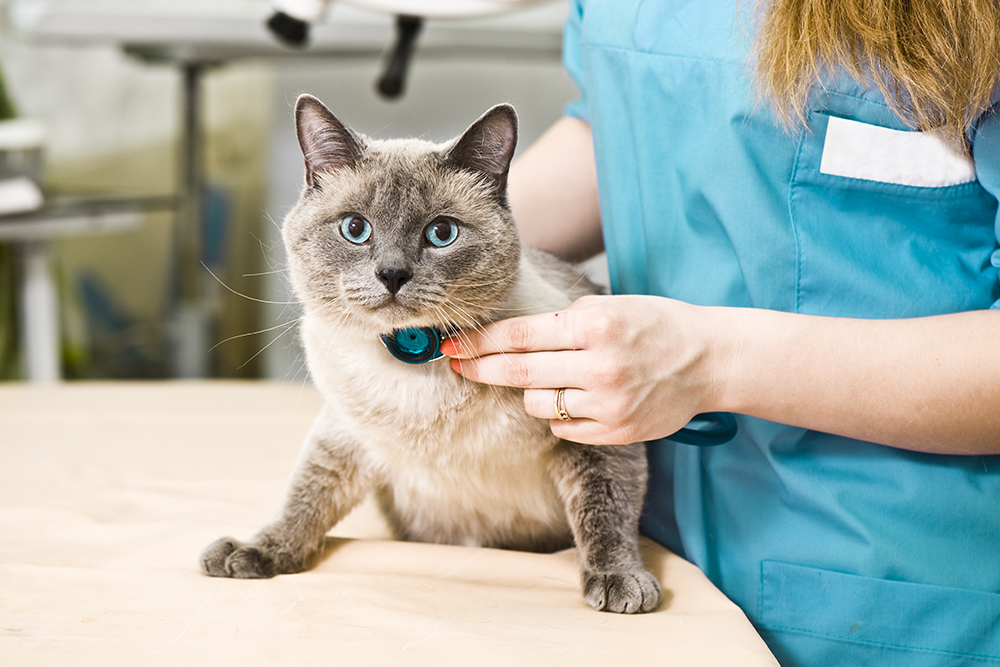Breed-Specific Health Issues Every Pet Owner Should Know
From dachshunds straining their backs to brachycephalic breeds like pugs struggling to breathe, certain conditions are closely tied to a pet’s genetics. Owners may notice snoring, limping, or recurring skin infections and wonder if it is “just the breed” or something more serious. Diagnostics and preventive care help manage these risks and improve quality of life.
At the Animal Clinic of Council Bluffs in Council Bluffs, IA, advanced treatments such as laser surgery, PRP, and stem cell therapy provide prevention and healing for pets of all breeds.
Understanding Breed-Specific Health Issues
Every breed carries a genetic blueprint that influences not only appearance but also health predispositions. These inherited traits developed over generations of selective breeding, sometimes concentrating certain health risks alongside desired characteristics.
Understanding your pet’s background helps you and your veterinarian target prevention, screening, and lifestyle adjustments before issues escalate. Recognition of breed-linked patterns informs everything from weight targets and activity plans to diagnostic timelines.
Common Health Problems by Breed
Brachycephalic Breeds and Breathing Challenges
Flat-faced breeds such as pugs, bulldogs, and Boston terriers face respiratory challenges due to compressed facial structures. Brachycephalic Obstructive Airway Syndrome (BOAS) involves narrowed nostrils, elongated soft palates, and restricted airways.
Key signs of BOAS include:
- Loud snoring
- Exercise intolerance
- Gagging or choking
- Blue-tinged gums during exertion
Heat and humidity are especially dangerous since panting is their main cooling mechanism. These breeds also have higher rates of birthing difficulties, often requiring cesarean sections to safely deliver puppies.
Dachshunds and Intervertebral Disc Disease (IVDD)
The dachshund’s long spine and short legs make them prone to Intervertebral Disc Disease (IVDD), where discs between the vertebrae herniate or rupture. This condition can cause pain, nerve compression, or even paralysis.
Watch for reluctance to jump, a hunched posture, or sensitivity when picked up. If your pet shows hind limb weakness or loses balance, seek immediate care. Rapid treatment often prevents permanent damage. Weight management, ramps, and low-impact activity are key preventive steps.
Toy Breeds and Dental Health Concerns
Small dogs have full-sized teeth in compact mouths, creating crowding that traps food and bacteria. Without consistent care, toy breeds often develop periodontal disease early in life.
Regular professional dental cleanings and daily brushing help prevent pain and infection. Good oral hygiene also supports systemic health since oral bacteria can affect the heart, liver, and kidneys.
Larger Breeds: Orthopedic and Neurological Risks
Giant and large breeds experience orthopedic and spinal conditions linked to growth rate and body mass. Wobbler Syndrome affects the neck vertebrae, particularly in Great Danes and Dobermans, causing unsteady movement and weakness.
Degenerative Myelopathy occurs in older German Shepherds and Boxers, starting with hind limb weakness and progressing to paralysis. Though incurable, early diagnosis and mobility support can maintain comfort and function longer.
Cats and Polycystic Kidney Disease
Persian cats and related breeds commonly inherit Polycystic Kidney Disease (PKD), in which fluid-filled cysts gradually destroy kidney tissue. It can remain undetected for years, emphasizing the importance of routine bloodwork and ultrasound screening.
Genetic testing helps identify carriers before breeding. For cats already affected, careful diet, hydration, and monitoring can slow progression and improve quality of life.
Heart Disease in Cats and Dogs
Heart conditions often progress silently and vary by breed and species.
- Cats: Hypertrophic cardiomyopathy (HCM) is the most common feline heart disease, particularly in Maine Coons and Ragdolls. The heart muscle thickens, reducing its ability to pump blood effectively. Left untreated, HCM can cause fluid buildup, blood clots, or sudden collapse.
- Large dogs: Canine dilated cardiomyopathy (DCM) affects breeds like Dobermans, Boxers, and Great Danes. The heart muscle weakens and stretches, leading to fatigue, coughing, or fainting.
- Small dogs: Mitral valve disease (MVD) frequently appears in toy breeds as they age, where a leaky valve causes a chronic murmur and, over time, heart failure.
- Arrhythmias: Irregular heart rhythms can affect any breed but are especially common in Dobermans and Boxers. Canine arrhythmias require ongoing monitoring and, in some cases, medication or pacemaker placement.
Routine exams and echocardiograms help identify cardiac changes early, when medications and dietary management can greatly improve longevity.
Hereditary Eye Diseases
Many breeds are at risk for hereditary eye diseases, including cataracts, glaucoma, and progressive retinal atrophy. Early detection through annual ophthalmic exams is vital for maintaining vision and preventing irreversible blindness.
Cancer and Other Serious Health Concerns
Certain breeds are more susceptible to cancer. Golden Retrievers often face lymphoma and hemangiosarcoma, while Rottweilers and Greyhounds are prone to bone cancer. Awareness and early screening are crucial for detection and intervention.
Hemangiosarcoma is an especially aggressive blood vessel cancer that develops silently in organs like the spleen or heart, often discovered only after internal bleeding. Regular wellness exams and imaging can catch abnormalities before emergencies occur.
Genetic Testing and Pet Insurance: Planning Ahead
Even the healthiest breeds can carry hidden risks. Proactive planning through genetic testing and pet insurance helps owners prepare before problems arise.
Genetic Screening for Breed Health
Modern DNA testing kits like Wisdom Panel, Embark, and Basepaws allow owners to uncover their pet’s breed makeup and detect potential health risks. Testing can identify predispositions for heart disease, orthopedic issues, metabolic disorders, or kidney disease, giving veterinarians the ability to create personalized preventive plans.
Breeders can also use these tools to avoid passing on harmful traits, helping improve the overall health of future generations.
Pet Insurance for Peace of Mind
Many hereditary conditions are considered “pre-existing” once diagnosed, which means they won’t be covered if insurance is purchased too late. Signing up early- before symptoms appear- ensures coverage for lifelong conditions that could otherwise create financial strain.
High-risk breeds such as Great Danes, Bulldogs, and Ragdolls benefit most from early enrollment. Understanding how coverage works through Pawlicy Advisor’s pet insurance guide can help owners choose the best plan for hereditary and chronic conditions.
Prevention and Management Strategies

Regular Check-Ups and Preventive Care
Proactive care remains the cornerstone of health management. Our clinic offers comprehensive services, including imaging, lab work, and breed-specific screenings to identify problems early.
During wellness visits, we:
- Establish breed-specific baselines
- Perform targeted exams based on predispositions
- Customize diet and weight management plans
- Tailor vaccines and parasite prevention to lifestyle and genetic risks
Advanced Treatments for Breed-Specific Conditions
Our advanced treatments such as platelet-rich plasma therapy, stem cell therapy, and laser surgery promote healing and mobility in pets with orthopedic, neurological, or soft-tissue challenges.
These modalities complement traditional pain management, rehabilitation, and surgery, allowing for comprehensive, breed-specific care that supports recovery and long-term comfort.
Home Care and Monitoring
Owners play a vital role in early detection. Performing a simple home exam helps identify changes in behavior, breathing, appetite, or mobility before they become serious.
Keep an eye on your pet’s:
- Weight and muscle tone
- Dental and oral health
- Exercise tolerance
- Temperature sensitivity
If you notice changes, schedule an appointment promptly for evaluation.
Emergency Health Situations: When to Call Your Vet
Certain warning signs always require immediate attention:
- Brachycephalics: open-mouth breathing at rest or collapse in heat
- Long-backed breeds: sudden back pain, dragging limbs
- Large breeds: pale gums, collapse, or distended abdomen
Recognizing pet emergency signs ensures quick action when time matters most.
Partnering with Your Veterinarian for Lifelong Health
Understanding your pet’s breed-specific risks empowers you to take action before problems progress. Regular wellness care, genetic insight, and preventive planning can transform inherited risks into manageable challenges.
If your pet shows signs of breathing issues, mobility changes, or any breed-linked condition, contact Animal Clinic of Council Bluffs at (712) 323-0598 or schedule an appointment. Our experienced team is dedicated to providing advanced diagnostics, customized treatment, and lifelong support for your pet’s unique health journey.






Leave A Comment